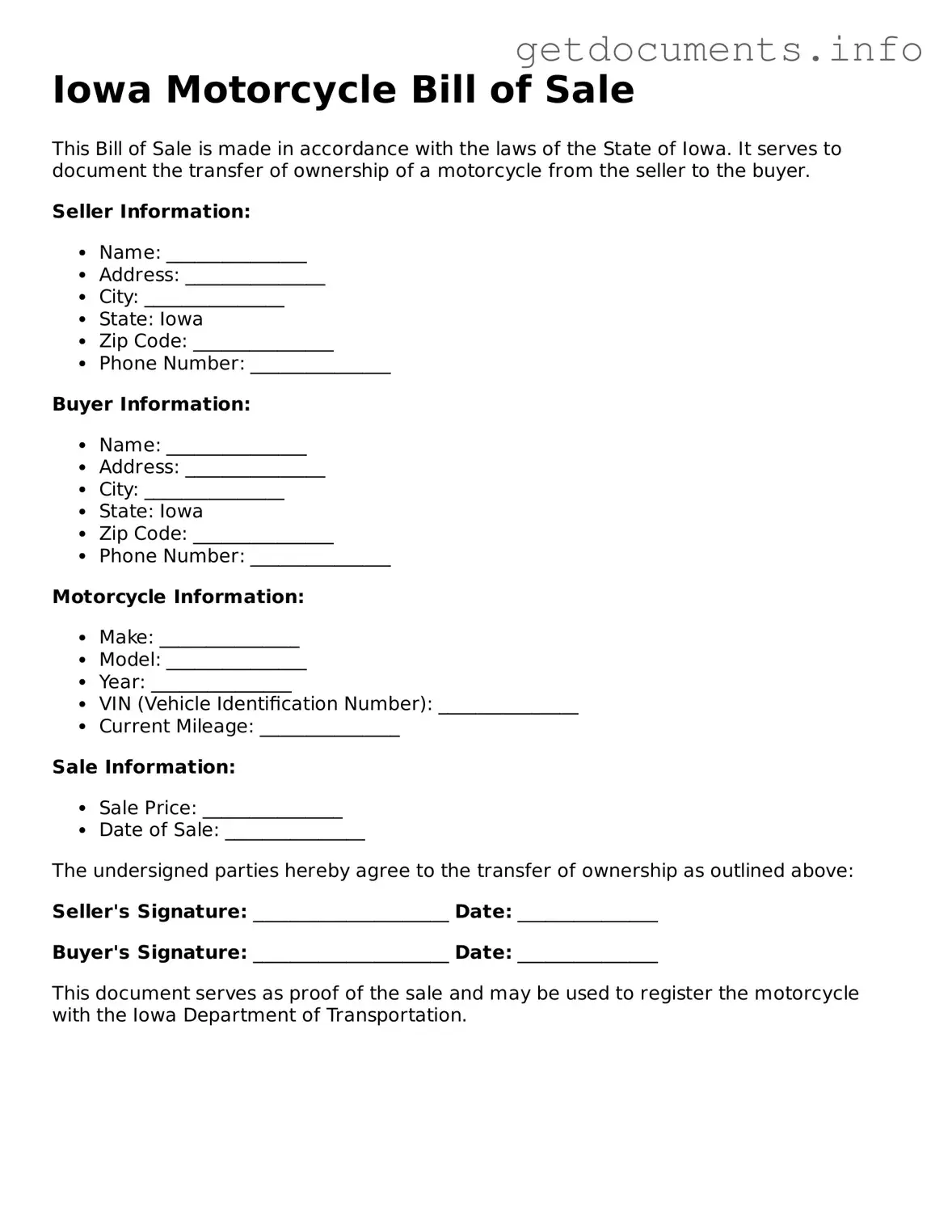Free Motorcycle Bill of Sale Template for Iowa
The Iowa Motorcycle Bill of Sale is a legal document that records the transfer of ownership of a motorcycle from one party to another. This form serves as proof of the transaction and outlines important details such as the purchase price, vehicle identification number, and the names of both the buyer and seller. Completing this form is essential for ensuring a smooth transfer of ownership and protecting both parties involved.
To fill out the form, click the button below.
Access Motorcycle Bill of Sale Editor

Free Motorcycle Bill of Sale Template for Iowa
Access Motorcycle Bill of Sale Editor
Got places to be? Complete the form fast
Fill out Motorcycle Bill of Sale online and avoid printing or scanning.
Access Motorcycle Bill of Sale Editor
or
⇩ PDF File
